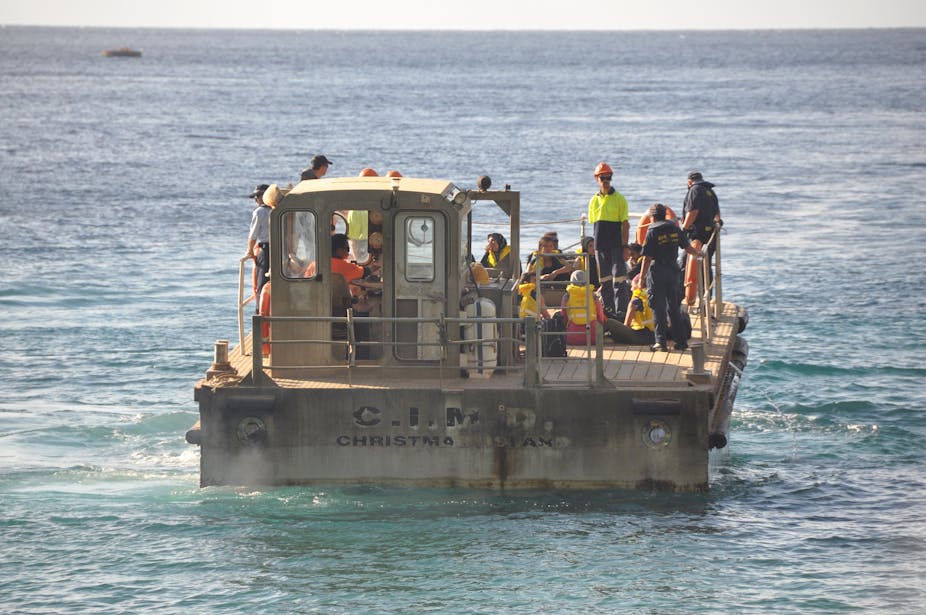Another refugee boat has sunk. Several hundred people have drowned. Why do they keep trying to come? What should our response be?
If you are an optimist with no sense of history, you would be forgiven for thinking that seeking asylum has, until now, been a safe and orderly process, and that we need to make sure it is nice and tidy from now on, for their protection.
Of course, it is tragic when asylum seekers die in a desperate attempt to reach protection. It is also tragic when they stay behind and are slaughtered. The key difference is that, when they stay behind and become another statistic in the grim arithmetic of ethnic cleansing, we do not empathise with them. Our conscience remains untouched. When we learn that they have perished in an attempt to seek safety here, it seems different.
Why is that? Is it because they have tried to engage us? Is it because the ethics of proximity has begun to operate, so that we feel a heightened sense of responsibility for them?
Is it simply because, in the unhealthy environment of current domestic politics, their fate is automatically drawn to our attention by politicians trying to exploit the occasion for their own political advantage?
If you had been a Jew in Germany in 1939, would it have been better to chance your arm with a people smuggler or stay put and avoid the risk? And which is more tragic – to die passively or die in an attempt to escape? One thing is certain, if the Taliban gets you, you are just as dead as if you drown.
Most Australians have trouble understanding what it means to put your life in the hands of a people smuggler, or why anyone would do it. Try to imagine you are a refugee, you are part of an ethnic minority in Afghanistan. Your people are the target of ethnic cleansing. You have friends and family members who have been killed by Taliban snipers and suicide bombers.
You know children who were blown to bits when the Taliban used them as mine-sweepers. You know of the teenager who was forced back to Afghanistan from Nauru in 2002 and who was hunted down by the Taliban. When they found him in his village, they dragged him out of his house and threw him down the village well. A hand grenade was dropped in after him.
You have borrowed enough money to get to Australia. It is cheaper than getting to Europe or America. With your family you make your way to Indonesia, passing through Muslim countries which allow free passage to Muslims, but they do not offer protection because they have not signed the Refugees’ Convention.
In Indonesia you can go to the UNHCR and get a card which vouches that you are a refugee, but it doesn’t mean much because the Indonesian government will jail you if they find you, and you aren’t allowed to work, and you can’t send your kids to school. You will wait in the shadows until some country offers to resettle you. It could take 10 or 20 years.
There is one line of escape – you can pay a people smuggler who will take you to Australia by boat. It is dangerous, but it is a chance for freedom and safety, for you and for your kids.
Imagine yourself there.
What would you do?
What would most Australians do?
What would our political leaders do, if they were in that position?
I know I would take the risk, and I suspect most Australians would do the same. You know that if your luck runs out you could die trying to reach safety.
It is tragic that people drown trying to get here to safety. It happens. It will keep happening. Our compassion for the drowned should be harnessed to a genuine rethink of our refugee policy. One thing is sure enough: if the risk of drowning is not a deterrent, then shipping them off to Malaysia or Nauru won’t be.
But there is a way of deterring them from getting on a boat in Indonesia. We can introduce a substantial annual quota of refugee resettlement of asylum seekers in Indonesia. If we took 10,000 refugees each year from Indonesia, and took them in order of lodging an application in Indonesia for protection, the incentive to get on a boat would disappear. We would save many lives. But we would have to accept a larger number of refugees than we do now.
We can do it. But we won’t do it unless we are fair dinkum about our concern about people drowning at sea.

